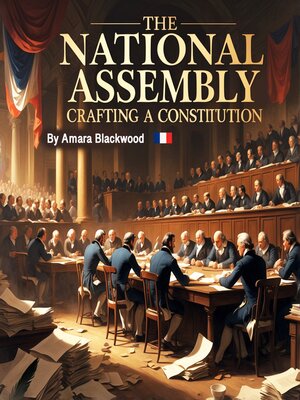
Sign up to save your library
With an OverDrive account, you can save your favorite libraries for at-a-glance information about availability. Find out more about OverDrive accounts.
Find this title in Libby, the library reading app by OverDrive.



Search for a digital library with this title
Title found at these libraries:
| Library Name | Distance |
|---|---|
| Loading... |
The formation of the National Assembly marked a turning point in history, reshaping governance and laying the foundation for constitutional rule. It emerged from the political turmoil of a monarchy struggling with financial crises, social unrest, and an outdated feudal system. The roots of the National Assembly can be traced back to the Estates-General, a centuries-old advisory body that had long been dormant. When King Louis XVI convened the Estates-General in 1789 to address France's dire economic situation, he unintentionally set the stage for a political transformation that would redefine the nation.
The Estates-General was composed of three estates: the clergy, the nobility, and the commoners, known as the Third Estate. Each estate traditionally held equal voting power despite vast disparities in population and influence. The Third Estate, which represented the majority of the French people, found itself consistently outvoted by the privileged classes. Frustration over this imbalance, coupled with widespread demands for political reform, led the Third Estate to take a decisive stand. Rejecting the old voting structure, its representatives declared themselves the true voice of the nation and proclaimed the formation of the National Assembly on June 17, 1789. This act was not merely a procedural shift but a bold assertion of sovereignty, challenging the very legitimacy of absolute monarchy.
The declaration of the National Assembly was met with immediate resistance from the monarchy and conservative factions. King Louis XVI initially dismissed the move, attempting to maintain control through traditional authority. However, support for the Assembly grew rapidly, fueled by Enlightenment ideals advocating for representative government and individual rights.







